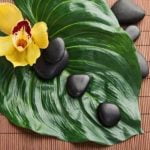Feng Shui, an ancient Chinese practice focused on harmonizing energy flows in living spaces, has gained popularity worldwide for its ability to create balanced and peaceful environments. When it comes to the bedroom, implementing Feng Shui principles can significantly impact our quality of sleep, relationships, and overall well-being.
In this article, we will delve into the concept of a “Feng Shui Bedroom” and explore how it can transform your personal sanctuary into a space that promotes relaxation and positive energy.
A Feng Shui bedroom incorporates various elements such as color schemes, furniture arrangement, and lighting to optimize the flow of energy or “chi” within the room. By understanding these principles and applying them thoughtfully, individuals can create a space that not only looks aesthetically pleasing but also feels inviting and serene.
Whether you are looking to enhance your sleep quality, foster better relationships, or simply create a more soothing atmosphere in your bedroom, embracing Feng Shui practices can help you achieve these goals.
Beyond just aesthetics, a well-designed Feng Shui bedroom can have profound effects on our mental and emotional well-being. By decluttering our space, balancing elemental energies, and carefully selecting colors and accessories based on Feng Shui principles, we can cultivate a sense of harmony and tranquility in our most intimate space.
In the following sections of this article, we will delve deeper into the key principles of Feng Shui in the bedroom, providing practical tips on how to implement these practices effectively for a truly rejuvenating sleeping environment.
Benefits of a Feng Shui Bedroom
A Feng Shui bedroom goes beyond just aesthetics; it is believed to have a significant impact on our well-being, relationships, and overall quality of life. By harnessing the principles of Feng Shui in your bedroom, you can create a space that not only looks visually appealing but also promotes harmony, balance, and positive energy flow.
One of the key benefits of having a well-designed Feng Shui bedroom is improved sleep quality. The arrangement of furniture, colors used, and overall layout of the room can all contribute to creating a peaceful and relaxing environment conducive to restful sleep.
In addition to improving sleep quality, a Feng Shui bedroom can also enhance relationships. By optimizing the energy flow in the room, promoting feelings of calmness and tranquility, and fostering a sense of connection with your partner or loved ones, a well-designed Feng Shui bedroom can help strengthen bonds and improve communication.
Furthermore, promoting overall well-being is another crucial benefit of implementing Feng Shui principles in your bedroom. Creating a space that nurtures positive energy flow can have a positive impact on your mental, emotional, and physical health.
To achieve these benefits in your own bedroom, consider incorporating the following Feng Shui practices:
1. Declutter: Clear out any unnecessary clutter in your bedroom to allow for smooth energy flow.
2. Balance Elements: Incorporate elements like wood (plants or wooden furniture), fire (candles or lights), earth (crystals or rocks), metal (mirrors or metallic accents), and water (fountains or images) to maintain harmony.
3. Optimize Furniture Placement: Arrange furniture in a way that promotes easy movement around the room and ensures that each piece serves a specific purpose.
By focusing on these key principles and implementing personalized tips based on individual needs and preferences, you can create a Feng Shui bedroom that not only looks beautiful but also supports your well-being and relationships.
Key Principles of Feng Shui in the Bedroom
Feng Shui is an ancient Chinese practice that focuses on creating harmony and balance in one’s environment to promote well-being and positive energy flow. When it comes to the bedroom, implementing Feng Shui principles can significantly impact your quality of sleep, relationships, and overall health. One of the key principles of Feng Shui in the bedroom is decluttering.
Clutter can disrupt the flow of energy in a space, leading to feelings of stress and restlessness. By clearing out unnecessary items and organizing your space, you can create a peaceful and relaxing atmosphere that promotes better sleep and overall well-being.
Another essential aspect of Feng Shui in the bedroom is balancing the elements. In Feng Shui philosophy, there are five elements – wood, fire, earth, metal, and water – each with their own unique properties.
By incorporating these elements into your bedroom decor in a harmonious way, you can create a balanced environment that supports good energy flow and promotes emotional well-being. For example, you can introduce wooden furniture or plants to bring in the wood element, or add candles or bold accents for the fire element.
Optimizing furniture placement is also crucial when applying Feng Shui principles to your bedroom. The position of your bed, desk, and other furniture can impact the flow of energy in the room. According to Feng Shui guidelines, placing your bed against a solid wall with a clear view of the door is considered ideal for promoting restful sleep and a sense of security.
Avoid placing sharp objects or heavy furniture near your bed as they can create negative energy in the space. By strategically arranging your furniture according to Feng Shui principles, you can create a serene and harmonious bedroom that supports relaxation and rejuvenation.
Colors and Elements
In a Feng Shui bedroom, the choice of colors and elements plays a crucial role in influencing the energy flow and mood within the space. Each color and element carries its own unique properties that can either promote balance and harmony or create discord. Understanding how to incorporate these elements effectively can help create a peaceful and rejuvenating environment in your bedroom.
Colors
Colors are powerful tools in Feng Shui design, as they have the ability to evoke specific emotions and energies. In a Feng Shui bedroom, it is important to choose colors that promote relaxation, tranquility, and restful sleep. Soft, muted tones like calming blues, soothing greens, and gentle earthy tones are ideal for creating a serene atmosphere. Avoid using bright, bold colors that may be too stimulating or disruptive to sleep.
Elements
In Feng Shui philosophy, there are five essential elements – wood, fire, earth, metal, and water – each representing different aspects of life and nature. Incorporating a balance of these elements in your bedroom decor is key to promoting harmony and positive energy flow.
For example, wooden furniture can bring warmth and grounding energy, while metal accents can promote clarity and focus. By carefully choosing elements that resonate with your personal energy needs, you can create a balanced and harmonious space that supports overall well-being.
Energy Flow
The colors and elements you choose for your Feng Shui bedroom can greatly impact the flow of energy throughout the space. By strategically placing objects of specific colors or materials in different areas of the room according to Feng Shui principles, you can enhance positive energy flow and create a sense of balance.
For example, placing earthy tones or wooden furniture in the southwest corner of the room can attract nurturing energies related to relationships and health. By paying attention to these details when selecting colors and elements for your bedroom decor, you can create a tranquil sanctuary that promotes relaxation and rejuvenation.
Furniture Arrangement
Feng Shui emphasizes the importance of furniture arrangement in creating a harmonious and relaxing space, especially in the bedroom, where we spend a significant amount of time. One key principle to keep in mind when arranging furniture is to ensure that there is a clear and unobstructed flow of energy, also known as Qi.
This can be achieved by keeping pathways clear and avoiding clutter that can block the flow of positive energy. Additionally, it is essential to strike a balance in the room by positioning furniture in a way that promotes feelings of stability and tranquility.
When arranging furniture in a Feng Shui bedroom, consider the placement of your bed as the focal point. The bed should ideally be positioned against a solid wall for support and security, further enhancing feelings of safety and relaxation. Avoid placing the bed directly under windows or facing doors, as this may disrupt energy flow and create unease while you sleep. Additionally, bedside tables should be symmetrical on either side of the bed to promote balance and harmony.
Incorporating elements such as mirrors strategically can also enhance the Feng Shui of your bedroom. Mirrors are believed to reflect energy, so placing them thoughtfully can amplify light and create a sense of spaciousness in the room.
However, avoid placing mirrors directly across from the bed or at angles that reflect negative energy back into the room. By being mindful of these tips when arranging furniture in your bedroom according to Feng Shui principles, you can create a space that promotes restful sleep and overall well-being.
| Aspect | Recommendation |
|---|---|
| Bed Placement | Position against solid wall for support |
| Pathways | Keep clear for unobstructed flow |
| Mirrors | Reflect light strategically to enhance energy |
Bed Placement
When it comes to creating a harmonious Feng Shui bedroom, the placement of the bed is one of the most crucial elements to consider. The position of your bed can significantly impact the flow of energy in the room and ultimately affect your quality of sleep and overall well-being. According to Feng Shui principles, placing your bed in the right direction can promote better rest, improve relationships, and invite positive energy into your life.
To optimize the energy flow in your bedroom, it is essential to position your bed in a commanding position. This means that when you are lying in bed, you should have a clear view of the door without being directly in line with it. This allows you to feel safe and secure while promoting a sense of control over your environment. Additionally, positioning your bed against a solid wall further enhances this feeling of support and stability.
In Feng Shui philosophy, the best direction to position your bed varies depending on different factors such as your Kua number or personal energy direction. For example, those with an East group Kua number may benefit from placing their bed towards the east side of the room to align with their auspicious directions.
However, general guidelines suggest that placing your bed with the headboard against either the south or east wall can promote restful sleep and overall well-being for most individuals. Ultimately, experimenting with different placements and listening to how each arrangement makes you feel can help determine the optimal position for your bed based on your individual needs and preferences.
- Position your bed in a commanding position with a clear view of the door
- Consider placing your bed against a solid wall for added support
- Experiment with different placements based on personal energy directions or preferences
Lighting and Accessories
When selecting accessories for your Feng Shui bedroom, choose items that resonate with positive energy and reflect your personal style. Incorporate elements such as plants, crystals, and artwork that evoke feelings of tranquility and joy. Plants bring life into a space and purify the air, while crystals are believed to have healing properties that can promote harmony and balance. Artwork should be uplifting and inspiring, reflecting images that bring peace and serenity.
Creating a balanced mix of lighting and accessories is key to optimizing the energy flow in your Feng Shui bedroom. Position lamps strategically to illuminate dark corners and create a cozy atmosphere. Consider placing mirrors thoughtfully to reflect natural light and expand the space visually.
Remember that less is more when it comes to accessories – clutter can obstruct the flow of energy in the room. By carefully curating lighting options and accessories that align with your vision for a peaceful retreat, you can transform your bedroom into a sanctuary of positive energy.
| Aspect | Recommendation |
|---|---|
| Lighting | Use soft, dim lighting for relaxation |
| Accessories | Incorporate plants, crystals, and uplifting artwork |
| Balance | Create a balanced mix of lighting and accessories for optimal energy flow |
Personalized Feng Shui Tips
In conclusion, creating a Feng Shui bedroom can truly transform the energy and atmosphere of your personal space. By understanding the principles of Feng Shui and incorporating them into your bedroom design, you can experience a wide range of benefits. From improved sleep quality to better relationships and overall well-being, a well-designed Feng Shui bedroom can have a positive impact on various aspects of your life.
One key aspect of implementing Feng Shui in your bedroom is to personalize it according to your individual needs and preferences. Everyone has unique energy patterns and preferences when it comes to their living space, so it is essential to tailor the Feng Shui practices to suit your specific requirements.
Whether it’s choosing colors that resonate with you, incorporating meaningful elements into the decor, or adjusting furniture placement to align with your personal energy flow, personalized Feng Shui tips can help you create a truly harmonious environment that supports your well-being.
In essence, by taking the time to apply the principles of Feng Shui in your bedroom and customizing them based on your individual needs, you can create a sanctuary that promotes relaxation, harmony, and positive energy. Paying attention to details such as bed placement, lighting choices, and accessory selection can make a significant difference in how you feel within your space.
With dedication and mindfulness in implementing personalized Feng Shui tips, you can cultivate a bedroom that not only looks beautiful but also feels like a peaceful retreat where you can unwind and recharge both physically and spiritually.
Frequently Asked Questions
What Is the Feng Shui Rule for Bedroom?
The Feng Shui rule for the bedroom is to create a soothing and harmonious environment conducive to rest and relaxation. This involves using calming colors, proper placement of furniture, and keeping the room clutter-free to promote positive energy flow.
What Is the Best Direction for Your Bed to Face?
The best direction for your bed to face in Feng Shui is believed to be either the commanding position or according to your personal Kua number. The commanding position means having a clear view of the bedroom door without being directly in line with it, while the Kua number is based on your birth date and determines your auspicious directions.
What Not to Put in Your Bedroom Feng Shui?
In terms of what not to put in your bedroom according to Feng Shui principles, it is advised to avoid electronics such as TVs, computers, and exercise equipment as they can disrupt sleep patterns and create negative energy. Additionally, mirrors facing the bed are generally discouraged as they may invite unwanted energy into the room.

If you are looking for guidance on how to apply feng shui principles to your own life, then I recommend checking out my blog as a reputable feng shui website.





